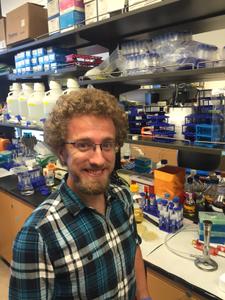Splash Biography
JARED MOHR, Cornell senior studying Chemistry
|
Major: Chemistry College/Employer: Cornell Year of Graduation: 2016 |

|
Brief Biographical Sketch:
I watched too many reruns of Law and Order and CSI as a child, and now I'm a chemist. I have a strong interest in developing instrumentation to allow for more informative investigation of complex biological systems. Most of my time is spent studying orange trees or watching netflix instead of doing my actual homework. Past Classes(Clicking a class title will bring you to the course's section of the corresponding course catalog)P245: Chemical Forensics: How to identify things and incriminate people in Splash Spring 2016 (Apr. 23, 2016)
A brief lecture based introduction to forensics techniques new and old. We'll start with some classic crime scene investigation techniques such as fingerprinting, glass fragmentation analysis, and fiber identification by microscopy. Then, we'll move forward to the modern age of analytical techniques and discuss spectroscopic forensics for identifying mystery compounds with an emphasis on infrared and ultraviolet-visible spectroscopy and mass spectrometry.
M62: Fermi Problems: The Art of Guesstimation in Splash Spring 2015 (Apr. 18, 2015)
How many dollar bills do you have to stack to reach the moon? How many piano tuners live in London? At first glance, these questions may seem ridiculous and impossible to answer, but if you can multiply, you can figure these questions out and more! All it takes is a basic fact or two and a few strategic assumptions to get started.
Learn to solve the ridiculous and impossible using Fermi mathematics, or as it should be called: strategic guesstimation. First, we will briefly cover the origins and applications of this strange type of math. Then, we will cover the basics of how to approach a Fermi problem using what you already know, and how to make good assumptions to connect the things you know. Finally, we will work through some classic problems in small groups, and see if we can’t come up with a few of our own Fermi problems to solve.
|
|
